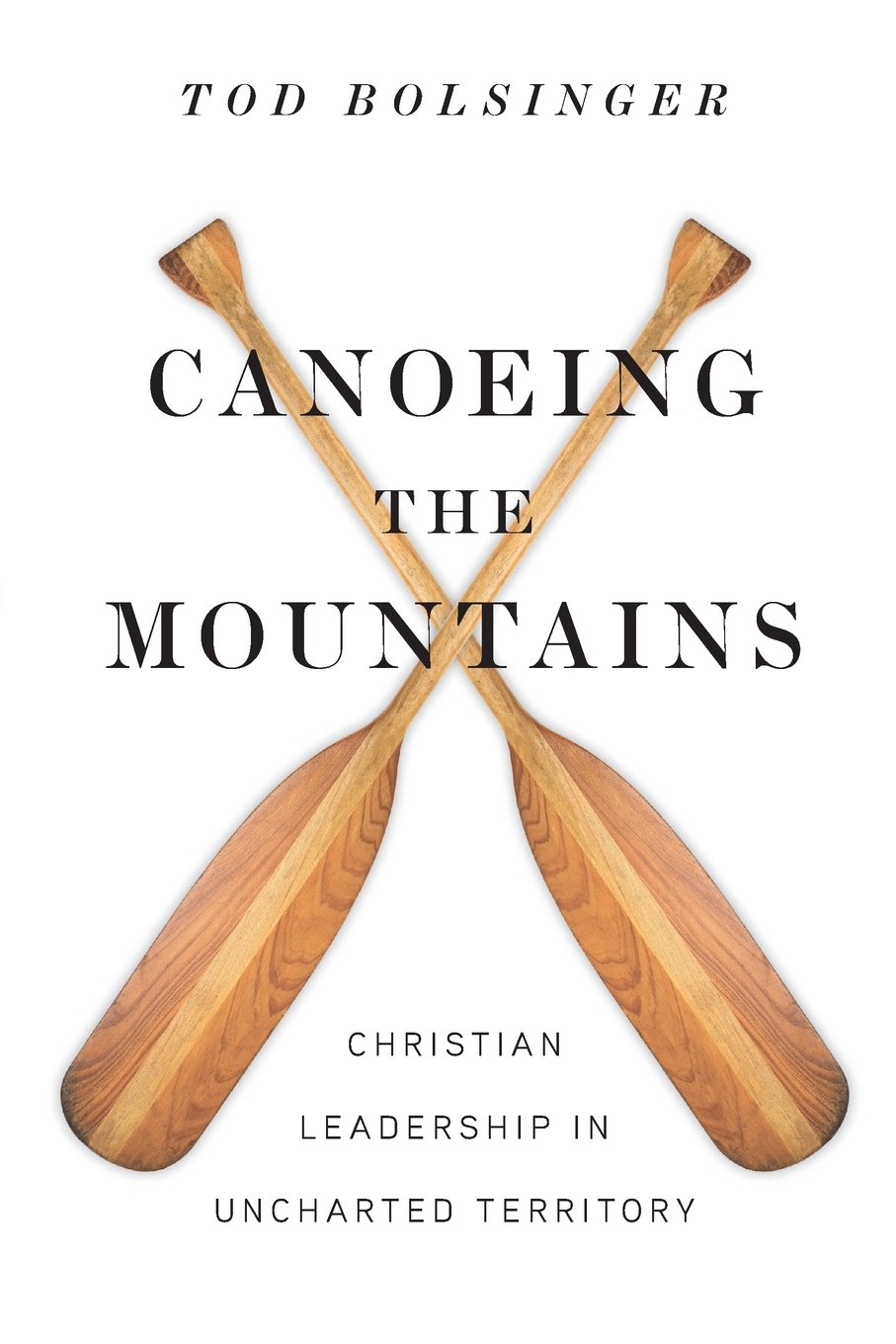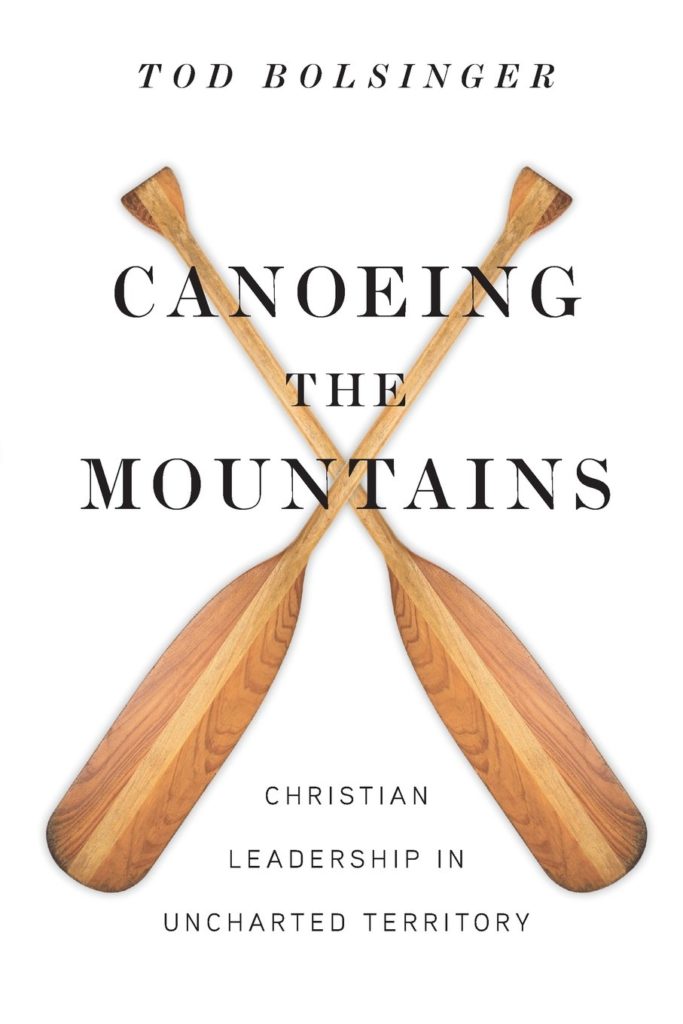
Books are great because not only do they help you learn about others, they help you learn about yourself. Such was the case with this book for me. It’s a book about Christian leadership that uses as it’s principle illustration the epic adventures of Lewis and Clark as they ventured West from 1804-1806 with their core of discovery. As I read, I found myself captivated by the story of the adventure, the historical details fascinated me, but the leadership strategies derived from them did not. Why is that? I think some people are strategists. Naturally, they want to understand and implement schemes and techniques to utilize people and move them in beneficial directions. Indeed, that’s not wrong. Then there are people like me, who aren’t energized by the helpful tips as much as from being amazed by the story as a whole. Perhaps that’s the difference between leaders & strategists over against historians and philosophers.
The Big Idea: Lewis and Clark thought they could canoe to the pacific ocean. When they started, they didn’t realize that a couple of enormous mountain ranges were standing in their way. In the end, they had to develop new methods; they had to think outside the box to accomplish their mission. It was innovate or die. For Bolsinger, it’s the same for the church. The canoeing days of Christendom church are over. Christian leaders must innovate or die.
The Family Business: A church is both a family and a business, says Bolsinger, he is right, and that for me has proven to be an immensely difficult challenge. I want the church to be a family only. It seems that whenever money gets involved, corruption is inevitable. But as a professional minister, what am I to do? This is and has been the quandary in which I have sat for far too long.
Plurality and diversity in leadership are essential: In the Lewis and Clark story, we find genuine plurality at the highest level of leadership, something unheard of in that day. Also, they collaborated with a teenage Indian mother. They let their entire group vote about certain things on the trip, including giving a black slave the same voting privilege as the core of white explorers. Bolsinger insists that minority groups and women are the way forward in Christian leadership. The white man alone and at the top is a canoeing strategy that won’t work to navigate the mountain ranges in front of us.
On the one hand, I agree, on the other, it is getting increasingly tiresome to hear “no white man allowed.” We have a problem; white men, as leaders, are not the solution; seems to be the message. There has to be a better way to look at this than skin colour. We tried that already, it failed.
“Missional” good but no good: Bolsinger loves all the missional talk. Living in that sent identity, refusing to let churches become “maintenance” oriented repositories for spiritual products and services, instead, reaching out in creative ways to be on mission in the every day. Etc etc. but then he says in the last 25 years the resurgence of missional talk has done little to change the precipitous drop in church attendance and involvement. Basically, the church sounds better but is still dying. What is needed is total innovation. The canoes need to be burned and replaced with mountain gear. My issue with this book is I didn’t catch what precisely the mountain gear for the church should be. Bolsinger says when things don’t work pastors usually talk longer, try harder and incorporate new tricks like powerpoint, home groups, and electric guitars. None of these small techniques will work because the context of our society has completely changed. The church has become irrelevant and obsolete. One Mountain range strategy that I caught from the book is that leadership in this new epoch will be less about teaching and speaking and more about equipping and living by example.
People don’t like change: The church is dying, people prefer to go down with the ship, rather than do a complete rebuild. To that end, Bolsinger reminds us to expect sabotage, embrace it and don’t take it personally. Family and familiar go hand-in-hand, and when leaders try to change anything, people aren’t going to like it. “Some people will lose under my leadership,” he says, innovative leaders have to learn to be ok with that. “Leadership is disappointing people at a rate they can absorb.” The author warns the reader, “Culture eats strategy for breakfast.” Culture is the way we do things, and church culture, like any culture, is very strong, so strategic movements that attempt to reshape culture will always come at a high cost.
One of his big mantra’s was knowing what the mission is and following it without exception.
In the end, the more significant take away for me was that I wanted to buy a history book and learn the fascinating story of Lewis and Clark. I’m not entirely sure in what ways I can disappoint my congregation at a rate they can absorb, or how exactly to burn the canoes and pick up climbing gear. I know I need to live by example. I know technique adjustments aren’t going to make the difference in the long run. I know that I probably need to be more clear on what our mission is. But these little nuggets on leadership and church strategy didn’t capture my imagination nearly as much as learning the story of Lewis and Clark. I guess I’m more of a historian than a leader.




